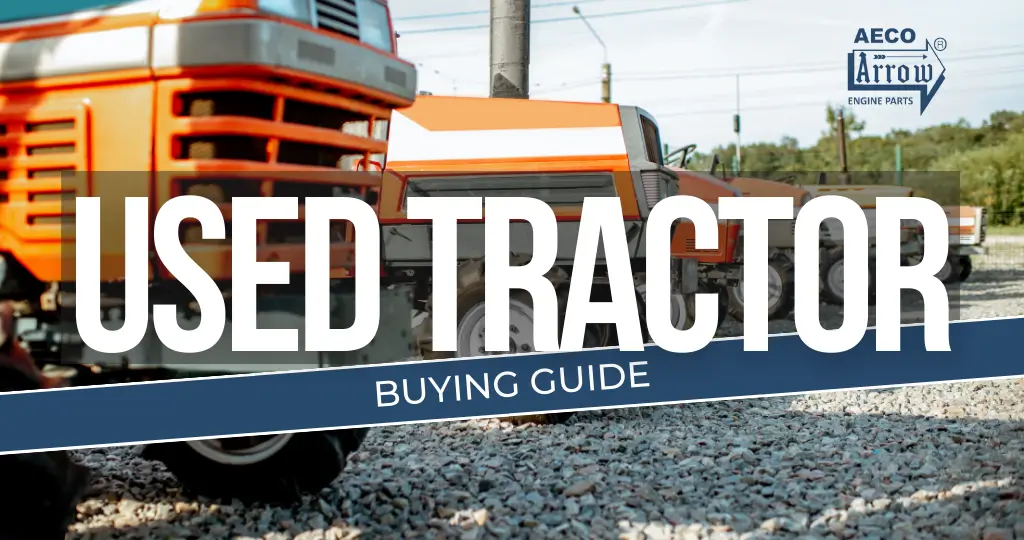Understand your needs:
Understanding your needs is crucial when buying a tractor. First, determine the purpose of the tractor and the tasks you plan to perform with it. Consider the size of your land to help decide on the appropriate tractor size, and identify the ideal horsepower required for your specific tasks. Additionally, think about any extra equipment you may need to attach to the tractor.
Thorough research is also essential. Investigate the different models available in your location or country and compare the average market prices. Check various websites, local dealers, and farmer communities to gather more information and make an informed decision.
Check tractors history:
A tractor's history can reveal a lot about its current condition. Just like cars have odometers, tractors have hour meters that show how long they've been operated. Fewer hours typically mean less wear and tear, but if a tractor has more hours, it's important to see how well it has been maintained. The maintenance record, usually found in the service book, will detail all the maintenance and any parts that have been replaced. Additionally, check the ownership history to see if it has been used by a single owner or multiple owners, as multiple owners might indicate varied usage and maintenance practices.
Check tractor thoroughly:
Inspecting a used tractor is essential when considering a purchase. Start by turning on the engine to check for any unusual sounds or leakages. Examine the tractor for rust, paint issues, and dents, both internally and externally. Look for signs of major repairs and, if any parts are damaged or not functioning properly, ask the owner to replace them or use this information to negotiate the price.
Check the hydraulic system by lifting it to see if there are any signs of leaks. Ensure that the brakes and transmission operate smoothly. If you're not confident in your ability to thoroughly inspect the tractor, bring along a farmer friend or a garage mechanic to assist you.
Documentation:
Verify the registration certificate to determine the exact age of the tractor. Also, review the insurance documents and invoices. If the tractor was purchased on finance, ensure that the owner provides the necessary No Objection Certificates (NOCs) from the bank.
Brand:
When considering a used truck, look for a reputable brand to avoid many potential issues. Some of the popular tractor brands include:
- John Deere
- Massey Ferguson
- New Holland
- Kubota
- Mahindra
- CLAAS
- Sonalika
- Swaraj
- Caterpillar
- International Harvester
Benefits of buying a second hand tractor:
Cost saving:
Opting for a used tractor can result in significant savings compared to buying a new one. The lower initial cost allows you to allocate your budget more effectively, whether it’s for additional equipment, labour, or other operational needs.
Reduced Depreciation:
Like cars depreciate rapidly same goes with tractor. But as you purchase used tractor you avoid this initial depreciation. This giving you a right return on investment.
Customization Options:
With used tractor you can customize all according to your need doing customization to the new tractor would void your warranty
Easier availability and faster delivery:
Used cars are easily available either online or in physical markets you can just pay up and get your tractor on the spot.
Lower financial risk:
Since you pay less compared to new one you have lowered your financial risk. If it requires repairs or replacements the overall impact on your finance will be less.
Access maintenance record:
When purchasing a used tractor, you often get a maintenance record from the previous owner. This information can help you understand tractor history and condition. This would help you avoid unexpected expenses.
Environment Friendly:
Purchasing a used tractor can be more environmental friendly because it extends the life cycle of existing machinery. This reduces the demand of new tractors, saving energy and resources while minimizing the waste.

